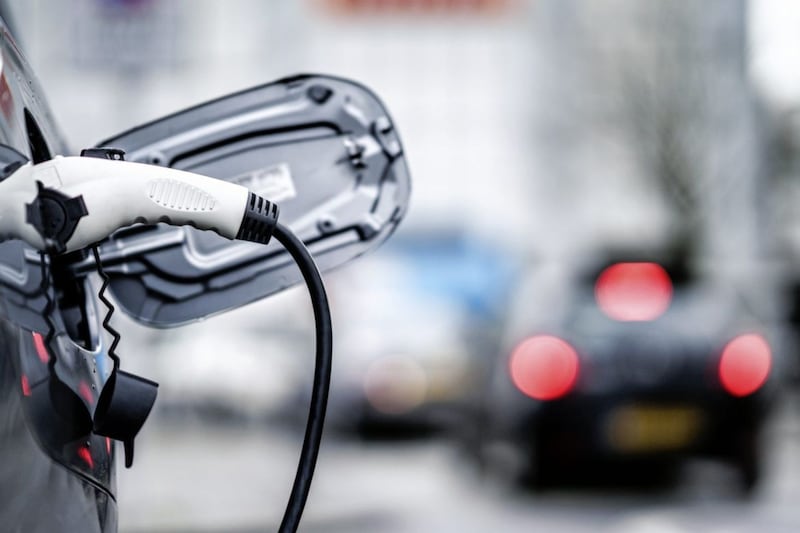LARGE swathes of the north will miss out on an EU-funded project to install new electric vehicle (EV) charging points after legal representatives from three councils raised concerns over the process.
Officially launched in 2021 with a €6.4 million budget, the FASTER Project was designed to provide 73 rapid charging points on council-owned property across Northern Ireland, border counties of the Republic and parts of western Scotland.
The project’s aim was to ensure that the availability of public charging stations is not a major obstacle to EV market penetration.
Eight councils in Northern Ireland originally signed up to take part in the scheme, which dates back to 2018.
But just three northern councils have managed to make it on the final list of provisional sites published last week.
All 25 of the charging points proposed for the north are located in 16 sites in either Belfast City Council, Ards & North Down or Newry, Mourne & Down.
Read more:
- EU funded project to install electric vehicle charge points launched
- The different types of public EV chargers explained
- Tesla to significantly expand Northern Ireland presence with new Belfast base
Some 23 sites have been identified in Scotland, with 14 sites proposed around the border counties of the Republic. Several of the locations across the border will have two charge points installed.
But even for those sites, time is running out for all funding to be spent and the project completed by the December 31 2023 deadline.
The project is being managed by the Special EU Programmes Body (SEUPB).
Ulster University led the procurement process in Northern Ireland to appoint a contractor to design, build and operate the EV chargers in July 2023.
Pamela Arthurs, chief executive of East Border Region Ltd, the lead partner on the project, said the procurement process required that all associate partners sign a collaboration agreement with Ulster University prior to the award of the contract.
“This was essential as the local authorities are responsible for the ongoing operation of the chargers for a period of seven years,” she said.
But at least three councils expressed concerns at this point, particularly with the collaboration partnership agreement, which had to be signed before a contractor could be appointed.
A report presented to Fermanagh & Omagh District Council’s regeneration and community committee last month stated: “Councils were given a very limited period of time to review the documentation.”
It revealed that the council’s legal team, alongside legal representatives from Mid Ulster and Derry & Strabane, had raised several issues with the process and the collaboration agreement.
A request for an extension to resolve the issues was declined due to the looming deadline.
As a result, the project went ahead without the involvement of the three councils, effectively meaning no EV sites in the western half of Northern Ireland.
In separate statements, both Mid Ulster and Derry & Strabane district councils said that following legal advice, it was decided there were "too many risks" to sign the agreement before the July 31 deadline.
The contract to install the northern EV chargers was awarded EasyGo in late August.
Belfast-based Weev has awarded the contract in mid-September to install 25 chargers across the border.
'Extremely challenging to implement'
It has also emerged that the original plan to establish new grid connections on council property had to be abandoned due to the tight timeframe.
Instead, the project opted to use ‘behind the meter connections’ at leisure facilities owned by councils.
That ruled out many sites due to lack of available capacity, which resulted in more chargers being allocated to the three northern councils still involved.
In a statement to The Irish News, Pamela Arthurs said: “The FASTER Project has been extremely challenging to implement within the three jurisdictions, within very tight timeframes, and strict conditions of the EU INTERREG VA funding.
“The FASTER Project partners have continually had to innovate and find solutions to the range of issues identified.
“The FASTER Project will however result in significant enhancement of the rapid EV charging infrastructure in Northern Ireland, the six border counties and western Scotland.”




